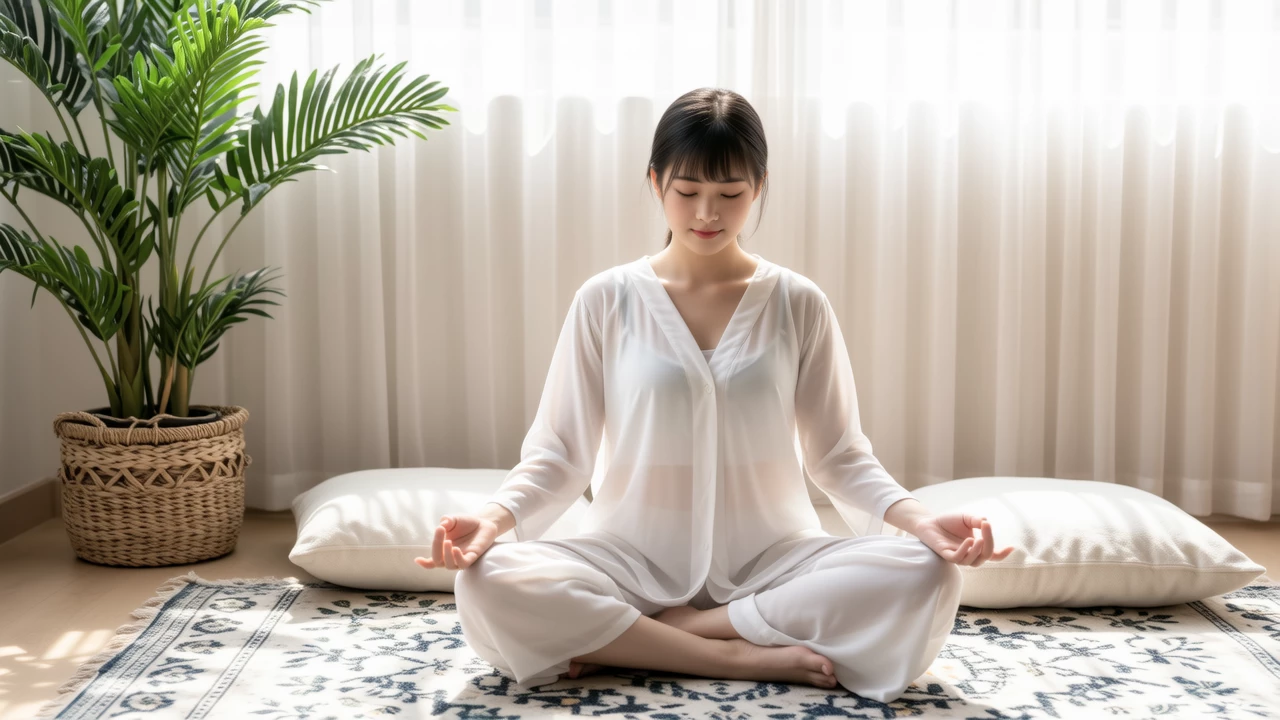In today’s fast-paced world, stress has become an almost inevitable part of daily life. Whether it’s due to work pressures, personal responsibilities, or global events, chronic stress can take a toll on our mental and physical health. However, incorporating simple relaxation techniques into your routine can significantly reduce stress levels and improve overall well-being. This guide will walk you through some practical, everyday methods to help you unwind and find calm amidst the chaos. Remember, the key is consistency—making these practices a habit can lead to long-term benefits.
One of the most accessible and effective ways to relieve stress is through deep breathing exercises. When we’re stressed, our breathing tends to become shallow and rapid, which can exacerbate anxiety. By consciously slowing down and deepening your breath, you activate the body’s relaxation response. Try this simple technique: sit or lie down in a comfortable position, close your eyes, and inhale deeply through your nose for a count of four. Hold your breath for a count of four, then exhale slowly through your mouth for a count of six. Repeat this cycle for five to ten minutes, focusing solely on your breath. This practice can lower blood pressure, reduce cortisol levels, and bring a sense of immediate calm. It’s something you can do anywhere, whether at your desk or before bed.

Another powerful tool for stress relief is mindfulness meditation. This involves paying attention to the present moment without judgment. You don’t need any special equipment—just a few minutes of your time. Start by finding a quiet space where you won’t be disturbed. Sit comfortably, close your eyes, and bring your awareness to your breath. Notice the sensations as you breathe in and out. If your mind wanders—which it will—gently guide it back to your breath without criticism. Regular meditation can rewire your brain to handle stress better, improve focus, and enhance emotional regulation. Apps like Headspace or Calm offer guided sessions for beginners, making it easier to get started.
Physical activity is a natural stress-buster. Exercise releases endorphins, which are chemicals in the brain that act as natural painkillers and mood elevators. You don’t have to engage in intense workouts; even a brisk walk, yoga, or dancing can do wonders. Aim for at least 30 minutes of moderate exercise most days of the week. Not only does it reduce stress, but it also boosts energy levels and promotes better sleep. If you’re short on time, break it into shorter sessions—like a 10-minute walk during your lunch break. The key is to find an activity you enjoy, so it doesn’t feel like a chore.
Listening to music can be incredibly soothing and is a quick way to shift your mood. Research shows that music can lower heart rate, reduce anxiety, and even alleviate pain. Create a playlist of your favorite calming songs—whether it’s classical, ambient, or nature sounds—and listen to it when you feel stressed. You can combine this with other activities, like taking a bath or doing light stretching, to enhance the relaxation effect. Music therapy is widely used in clinical settings, but you can easily incorporate it into your daily life for instant relief.
Spending time in nature is another excellent way to decompress. Whether it’s a walk in the park, gardening, or simply sitting outside, being in natural environments can reduce stress hormones and improve mood. The Japanese practice of "forest bathing" (shinrin-yoku) involves immersing yourself in a forest atmosphere, which has been shown to lower blood pressure and boost immune function. Even if you live in a urban area, try to find green spaces or bring nature indoors with plants. The fresh air and change of scenery can work wonders for your mental state.

Here are some additional quick relaxation techniques you can try throughout the day:
- Progressive muscle relaxation: Tense and then release each muscle group in your body, starting from your toes and working up to your head. This helps release physical tension.
- Visualization: Close your eyes and imagine a peaceful place, like a beach or mountains. Engage all your senses to make it vivid—smell the ocean, feel the sand, hear the waves.
- Journaling: Write down your thoughts and feelings to process emotions and gain perspective. It can be a cathartic way to release pent-up stress.
- Aromatherapy: Use essential oils like lavender, chamomile, or peppermint in a diffuser or as part of a massage. Scents can trigger relaxation responses in the brain.
- Laughter: Watch a funny movie, read jokes, or spend time with people who make you laugh. Laughter reduces stress hormones and increases endorphins.
Incorporating these techniques into your daily routine doesn’t have to be overwhelming. Start with one or two that resonate with you and practice them regularly. Even a few minutes a day can make a difference. Remember, stress relief is personal—what works for one person might not work for another, so experiment and find what suits you best.
Lastly, don’t underestimate the power of social connections. Talking to friends, family, or a therapist can provide emotional support and help you navigate stressful situations. Sometimes, just sharing your feelings can lighten the load. Make time for loved ones and engage in activities that bring joy and connection.

By making relaxation a priority, you’re investing in your long-term health and happiness. Stress is a part of life, but it doesn’t have to control you. With these everyday techniques, you can build resilience and find peace in the midst of chaos. Start small, be patient with yourself, and enjoy the journey toward a more relaxed life.